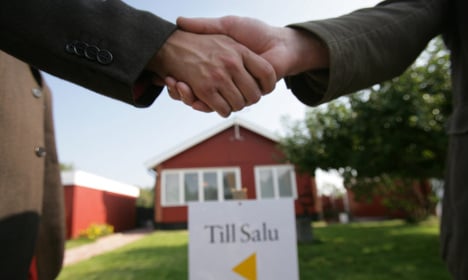The board of the bank has approved the liquidator proposed by the Swedish Financial Supervisory Authority (Finansinspektionen – FI), the lawyer Björn Riese, and will give him their support, according to the statement.
The statement details an “almost finalized negotiated solution”, which proved impossible to carry out.
“This solution relied on FI reconsidering its decision to revoke HQ Bank’s licence as a result of the proposed change in ownership,” the board wrote.
The board does not detail what that solution was, but late Sunday it emerged that FI had rejected a deal which would mean investment bank Carnegie becoming the new owner.
Carnegie was the only actor with a completed proposal for a takeover, according to a report in the Dagens Industri (DI) business daily.
DI wrote that Nordea had also looked into the possibility of buying HQ Bank, as a well as venture capital firm EQT, Handelsbanken, SEB, Norwegian DnB as well as investment firm ABG Sundal Collier.
The Swedish Financial Supervisory Authority (Finansinspektionen – FI) said HQ Bank had seriously overvalued its trading portfolio and had taken risks that threatened its survival.
FI announced the withdrawal of HQ Bank’s licence on Saturday saying that the firm was in breach of Swedish accounting and capital requirement regulations as its financial position had been reported inaccurately, with a correct valuation indicating that the bank has been undercapitalised since 2008.
“A bank can not behave like this. The fact that they took action when they were caught does not mean there are extenuating circumstances. We see no other option but to revoke the licence,” said FI’s director general Martin Andersson said in announcing the decision.
HQ Bank’s information head Eric Amcoff confirmed on Sunday that intensive discussions have been ongoing to try to find a solution but he was unwilling to comment on the details.
When asked how the forced liquidation would affect the bank’s customers Amcoff said that during the whole process they have worked to protect customers’ funds.
“We are not insolvent and our liquidity is not threatened. But from now on the responsibility lies with FI and the liquidators,” he said.
HQ Banks describes itself as a bank for “major investors.”
It manages some 60 billion kronor ($8.1 billion) from a total of around 20,000 depositors, and around 900 customers of the bank have deposits over the deposit guarantee limit of half a million kronor ($67,000), according to Swedish media.
Requests for further information were turned down, a person who answered the phone at HQ Bank saying it was closed.
On its website, HQ Bank said it was closed on Monday because the liquidator, “who has taken on the role as the bank’s managing director and board,” had to familiarise himself with the bank’s situation before operations could be continued.





 Please whitelist us to continue reading.
Please whitelist us to continue reading.
Member comments